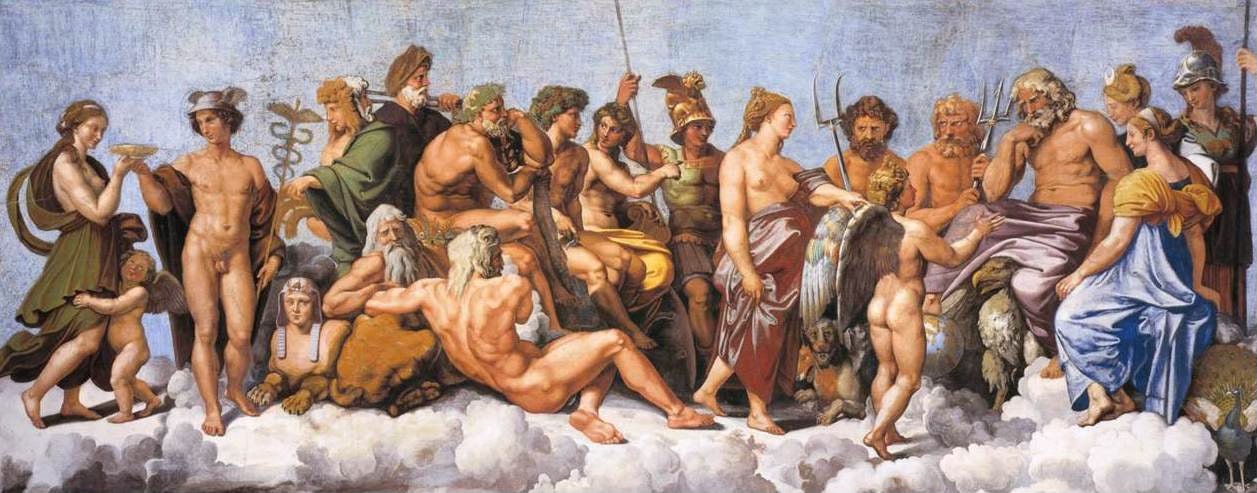The Greek Tragedies
I read them all (-1) and here's what I discovered

“I strain despairing eyes over my sea of misery
Hope vanishes, the shore is out of sight;
Disaster is a wave that I cannot surmount.”
~ Theseus in Hippolytus by Euripides
I have just finished reading all of the surviving tragedy plays by Aeschylus, Sophocles, and Euripides. That wasn’t the plan. I only wanted to read 2 or 3 of the most popular tragedies per playwright, but once I started with Aeschylus, I became addicted.
The tragedy plays take parts of stories from Greek Mythology and dramatize them. The original audience would have known the full story but would have been curious to see how the playwright positioned the characters within the play. It’s similar to seeing the film Titanic, where we know the tragic ending, but are entertained by the dramatization of a love story amidst the tragedy.
These plays were meant to be performed and not read. They most closely resembled our modern-day opera where singing, acting, and music combined into an engrossing spectacle. All musical notes and most theatrical direction have been lost and we are left with just the words. But “just the words” are some of the most exquisite drama, action, and ideas ever composed.
The theatrical performances consisted of groups of four plays by a single playwright: three tragedies followed by a more lighthearted (and bawdy) satyr play. It is estimated that 20,000 people or more would attend performances in hillside theaters. The groups of plays would then compete with each other and judges would award the prizes.
Just imagine for a moment what it would have been like to have attended one of these competitions. Aeschylus, Sophocles, and Euripides competing against one another, perhaps even acting in their plays, in Athens in springtime amidst a festival honoring Dionysus. It must have been a spectacle of spectacles. That will be one of my first stops when the time machine is invented.
The playwrights introduced interesting contrasts in these plays: deliberation vs force, victors vs suppliants, gods vs humans, to name just a few. Tragedies are impossible situations, those where the characters are damned if they do, damned if they don’t. There is usually an overarching fate that the characters attempt to bypass. It doesn’t work out very well and leads to much of the tragedy. But within the plays, these playwrights grapple with complex ideas that lack easy black and white answers. They really make you think.
Reading these plays wasn’t easy. I started with The Oresteia by Aeschylus and it took me four full readings of the three plays to understand them. I’m glad I put in the work as it paid off for the other tragedies. Each play takes around 2 - 3 hours to read, so I re-read many of them for pleasure or in preparation for the podcast episode.
I began to focus on five key items at the start of each play:
The Location - where does this take place?
The Chorus - the chorus was made up of 12 - 15 people and acted as the link between the actors and the audience. Who made up the chorus?
The First Speaker - the prologue set the stage for the rest of the play. Who spoke first? Was it a god or human?
The Mythological Timeline - what was the timeline within Greek Mythology? Did the play take place before, during, or after the Trojan War?
The Epic Cycle - most tragedies pulled from two overarching storylines - the Trojan Epic Cycle and the Theban Epic Cycle. The Trojan Epic Cycle included the Trojan War, Helen of Troy, the Trojan horse, and the Odyssey. The Theban Epic Cycle included stories about Orestes and his demented family.
I also took a deep interest in the surviving fragments of these playwrights. Only a small percentage of the original plays survive, but we are left with fragments of the ones we’ve lost. Fragments could be literal fragments discovered containing part of a play or could be references and quotes by other authors at that time (like Aristotle) that have survived in other works. I found it exhilarating to read the fragments and imagine the scene, who said it, and why it was said.
I left one play by Euripides (Rhesus) unread as I can’t bear the thought of having read all of the surviving Greek Tragedies. I do hope archeologists discover others during my lifetime. It’s entirely possible.
One last comment. We are unbelievably fortunate to have these plays. Some survived from a single copy. Yes, it’s disappointing that so few have survived, but perhaps our outlook should be one of amazement that we have what we have. We’re also at a point in time where it’s quite easy to access these plays in a language we understand. That has not been the case for most people throughout history. Take advantage of these plays and read some of the best that has ever been produced.



Excellent summary, thank you Erik. I am still at the very beginning of my own exploration of the Greek tragedies. Your overview will be a useful compass in this endeavor. 👍👍
Thanks for this! Very helpful. I'm a student of Koine Greek and was thrilled to find an Eastman Press version of Oedipus the King at a Thrift Store. One side of the page is in Greek, the other is the English translation. I'm double-motivated to read it.